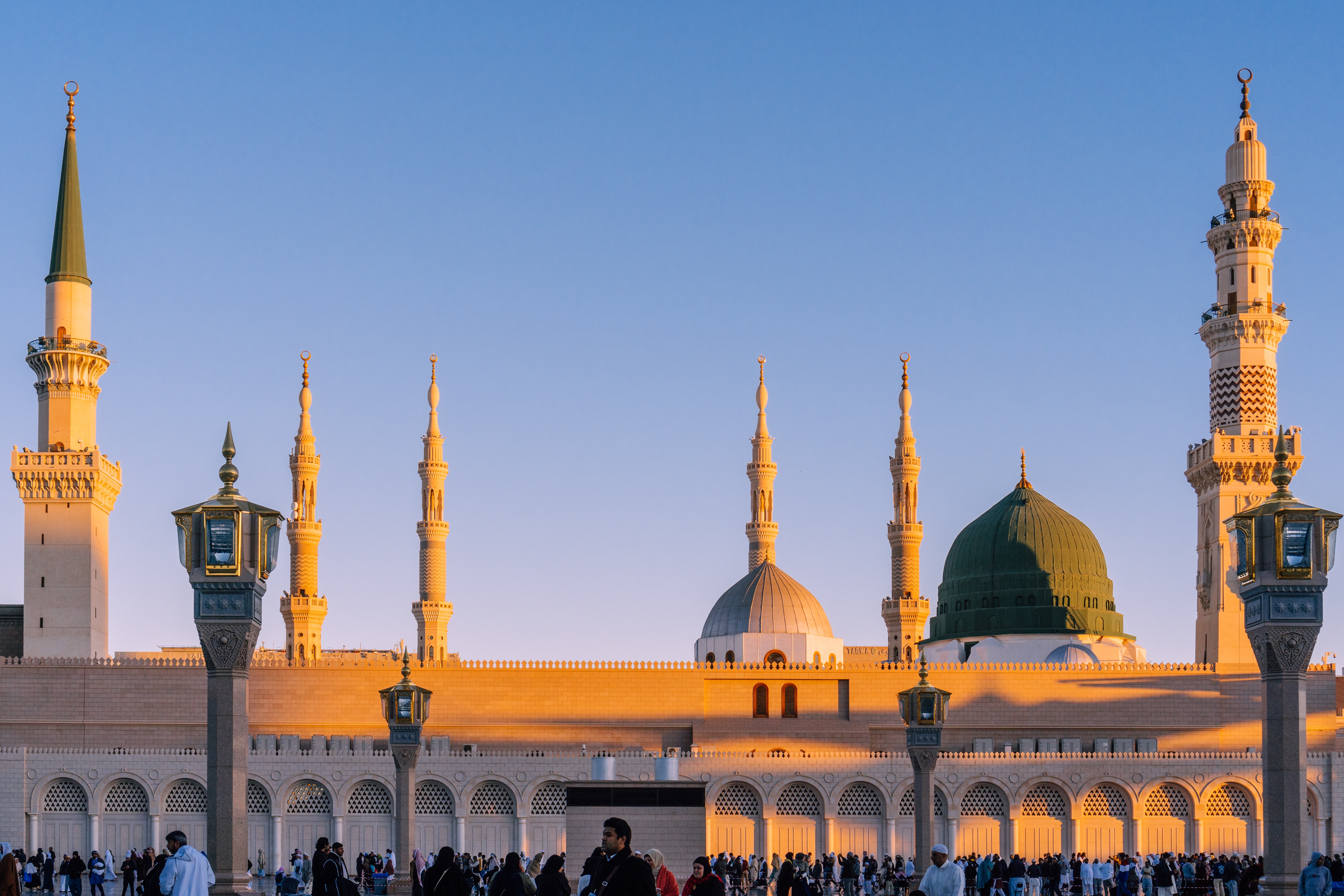
In the heart of the Arabian Peninsula, in the city of Makkah, there was born a child who would grow up to become the most beloved and revered prophet in Islam—Prophet Muhammad (ﷺ). His birth was a momentous event, occurring in the year of the Elephant, an eventful year when Abraha, the ruler of Yemen, attempted to attack the Kaaba but was thwarted by a miraculous intervention.
Muhammad (ﷺ) was born into the respected tribe of Quraysh, to his parents, Abdullah and Aminah. Tragedy struck at a young age when his father passed away before his birth, and then, his mother when he was just six years old. He became an orphan, but he was blessed with a loving grandfather, Abdul Muttalib, and later, his uncle, Abu Talib, who cared for him.
As a young man, Muhammad (ﷺ) gained a reputation for his honesty and trustworthiness. His character earned him the nickname “Al-Amin,” the trustworthy one. He was known to meditate in the cave of Hira, seeking solace and spiritual insight.
At the age of 40, during one of his contemplative retreats, something extraordinary happened. The Angel Gabriel appeared to him with a divine revelation, the first verses of what would become the Quran. Allah had chosen Muhammad (ﷺ) as His final messenger to deliver His message to humanity.
Muhammad (ﷺ) began sharing the revelations with his family and close friends, calling them to the worship of the one true God, Allah. Despite facing opposition from the leaders of Makkah and enduring persecution, he continued to preach the message of monotheism, justice, and compassion.
Over the years, the revelations from Allah continued to be conveyed to Muhammad (ﷺ) through Angel Gabriel, and they were eventually compiled into the Quran, the holy book of Islam.
As the years passed, Muhammad (ﷺ) faced numerous trials and challenges. He experienced the loss of his beloved wife Khadijah and his uncle Abu Talib, both of whom had been pillars of support. He faced opposition and hostility from the Quraysh and the neighboring tribes.
But despite these hardships, Muhammad (ﷺ) remained resolute in his mission. He continued to spread the message of Islam, attracting followers who believed in the message of one God and the teachings of the Quran. Eventually, the people of Madinah invited him to come and be their leader.
The migration to Madinah marked a turning point in the history of Islam. Muhammad (ﷺ) became a leader, statesman, and military commander. He established a just and thriving society based on the principles of Islam, where people of different backgrounds and faiths lived in harmony.
Throughout his life, Muhammad (ﷺ) exhibited unparalleled kindness, compassion, and humility. His character served as a living example of the teachings of Islam. He treated people with respect and dignity, championed the rights of women, orphans, and the less fortunate, and promoted peace and justice.
The final pilgrimage of Muhammad (ﷺ) in the year 632 CE was a momentous occasion. During his farewell sermon, he emphasized the importance of brotherhood, equality, and the sanctity of human life, leaving behind a legacy of wisdom and guidance for all of humanity.
Shortly after returning to Madinah, Muhammad (ﷺ) passed away, leaving his followers in grief but also with the profound teachings of Islam and the Quran. His legacy lives on through the Quran and the Hadith (sayings and actions of the Prophet), serving as a guide for millions of Muslims worldwide.
The story of the Prophet Muhammad (ﷺ) is one of faith, perseverance, and the transformative power of divine guidance. His life exemplified the ideals of Islam, and his teachings continue to inspire and guide Muslims in their journey of faith and righteousness. Muhammad (ﷺ) remains a beacon of light and a source of inspiration for all who seek a path of virtue, justice, and compassion.
Listen to the Best Islamic Content on Rabt
Download Now
Share the word :
